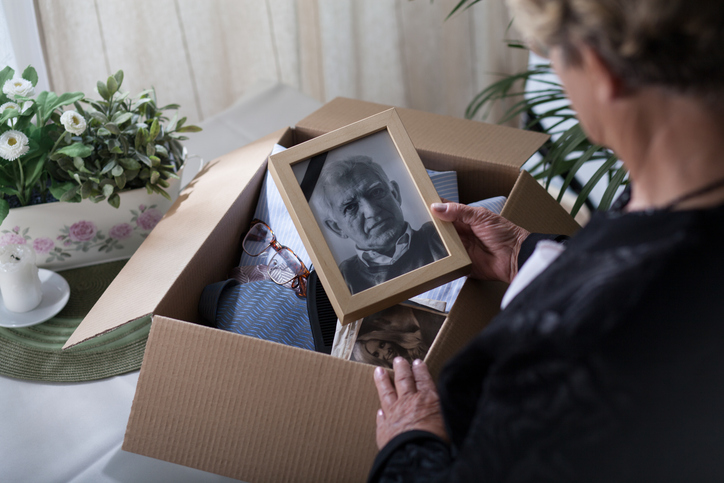What to Do After a Loved One Dies
June 15, 2025

The loss of a loved one is one of life’s most stressful events. Almost ninety percent of people over the age of 16 have experienced grief, but 57% of Americans have experienced a significant loss within the last three years.
Mourning is the natural process someone will go through when a loved one passes away. Though many initially gather with friends and family to share the loss, the mourning process is personal and may last months or years.
Here are some gentle steps to take when processing the loss of a loved one.
Know the Symptoms of Grief
Dealing with death is something most people would rather avoid altogether, but grieving isn’t something to put off. Your grief is likely to be felt physically, emotionally, and psychologically. Allowing yourself to move through your feelings is integral to the process.
Give Yourself Time
Now is the time to take care of yourself. You don’t need to put an expiration date on your grieving. “Some people grieve for years, and while they become more functional as time goes on, they may still get hit out of nowhere with grief-related feelings,” says Dr. Judy Ho, host of the podcast Supercharged Life.
“Grief isn’t linear; it’s more circular. You may feel like you’ve accepted the loss, then something happens months later, and you circle back to denial,” says Ho. However long it takes you to begin feeling better is unique to your situation. So be gentle with yourself as you experience waves of mourning.
Routine is Everything
It is essential to develop and stick to a new routine. Many activities will feel different, and it’s okay to make changes accordingly and try new things. However, sticking to some of what’s normal for you can also be a great comfort. “Grief has a way of rocking our sense of safety, but routine creates stability, which often codes as safety,” says Dr. Anita Robinson, author of The Gift of Grief.
Lean on Your Support System
When a loved one dies, it affects everyone in their circle. “Don’t manage grief alone,” says Melissa Robinson-Brown, a clinical psychologist in New York. “If there were ever a time to lean on family and friends, this would be it.” Talk to those you feel most comfortable with and let them know what you’re experiencing.
While everyone finds their way to cope, it can be valuable to share the loss of someone and grieve together. People should be open and honest with one another and not try to hide their feelings. Because the roles of family members may change, it’s best to communicate with one another moving forward.
Bereavement Groups and Counseling
It may be helpful to join a bereavement support group. Bereavement means the state of having been deprived of something or someone valued, primarily through death. Being around others experiencing the same loss level helps many feel less alone. Hospices, hospitals, and community organizations will all have more information on support groups in your area.
One-on-one counseling can be an essential part of losing a loved one and processing that loss in a healthy way. Death can come as a great shock, and mental health counselors can offer a safe place for you to resolve those emotions. Through hospice, bereavement care is even provided for up to 13 months.
Experiencing the loss of a loved one can be a painful process. Focusing on the joy the relationship brought to your life is a great source of solace during the most emotional moments. With Insureyouknow.org, you may store your loved one’s records for safekeeping so that when it’s time to handle the logistics of someone passing, you’ll be up for the task.
